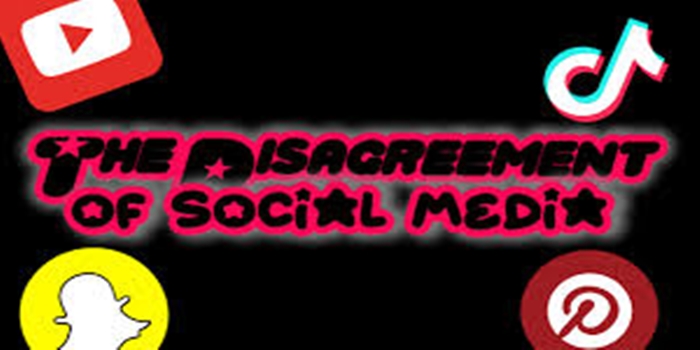In this article. We discussed the meaning of disagreement on social media, the examples, the factors, we also talked about the negative impact
Definition
A “disagreement on social media” refers to a situation where two or more users on a social media platform express opposing viewpoint on a topic, often leading to debate, argument, or even conflict within the comments section of a post or thread; this can range from mild differences of opinion to heated exchanges, sometimes fueled by the anonymity and lack of face-to-face interaction online.
Examples of disagreements on social media include:
Heated debates about political opinions
Arguments regarding current events
Conflicting views on social issues
Disagreements about celebrity news
Online arguments about personal experiences,
Clashes over product reviews, often escalating due to the anonymity and lack of face-to-face interaction the platform provides.
Specific examples could be:
Political debates:
Commenting on a post about a new policy with strongly opposing viewpoints, leading to back-and-forth arguments about the policy’s merits.
Social issues:
A post about a controversial social topic like abortion or gun control sparking heated discussions with people expressing vastly different opinions.
Celebrity news:
A comment section on a gossip article about a celebrity where fans passionately defend or criticize the star.
Product reviews:
A negative review of a product leading to a debate between the reviewer and the company or other satisfied customers.
Personal experiences:
Sharing a personal story on social media that prompts differing perspectives and interpretations from others.
Factors that contribute to disagreements on social media:
Anonymity:
People might feel more comfortable expressing strong opinions without the social pressure of face-to-face interaction.
Echo chambers:
Tendency to follow and interact only with people who share similar views, reinforcing existing opinions.
Limited context:
Lack of non-verbal cues can lead to misinterpretations and misunderstandings.
Fast-paced nature:
Social media encourages quick reactions and impulsive comments without considering the full context.
Negative Effects of Social Media Disagreements:
Polarization:
Public disagreements can amplify existing divisions within a community, pushing people further apart based on their opinions.
Misinformation spread:
Online arguments can facilitate the spread of inaccurate information, as users might share unverified claims to support their side.
Relationship damage:
Online conflicts can strain relationships with friends and family, especially if the disagreement becomes public.
Emotional distress:
Public criticism and online arguments can lead to stress, anxiety, and even depression for individuals involved.
Cyberbullying:
Social media platforms can be used to harass or bully others, particularly during disagreements.
Echo chambers:
Algorithms and social networks can create echo chambers where users are only exposed to viewpoints that align with their own, furthering polarization.
Reduced civility:
The fast-paced nature of online interactions can lead to less thoughtful and more aggressive communication styles.
How to mitigate negative effects:
Practice mindful online behavior:
Think before posting, avoid inflammatory language, and be respectful of diverse opinions.
Engage in private conversations:
If a disagreement arises, try to discuss it privately with the person involved rather than airing it publicly.
Fact-check information:
Verify information before sharing it to avoid spreading misinformation.
Limit exposure to divisive content:
Be selective about who you follow on social media and consider taking breaks from platforms that contribute to negativity.
Conclusion
A common disagreement on social media is the separation of opinions where users tend to surround themselves with like-minded individuals, creating “repeat chambers” where opposing viewpoints are hardly met, leading to delicate conflict and difficulty in having positive discussions due to the lack of diverse perceptions and likely for misinformation to spread unchecked; this can be worsened by the anonymity and lack of face-to-face interaction inherent to online platforms.

